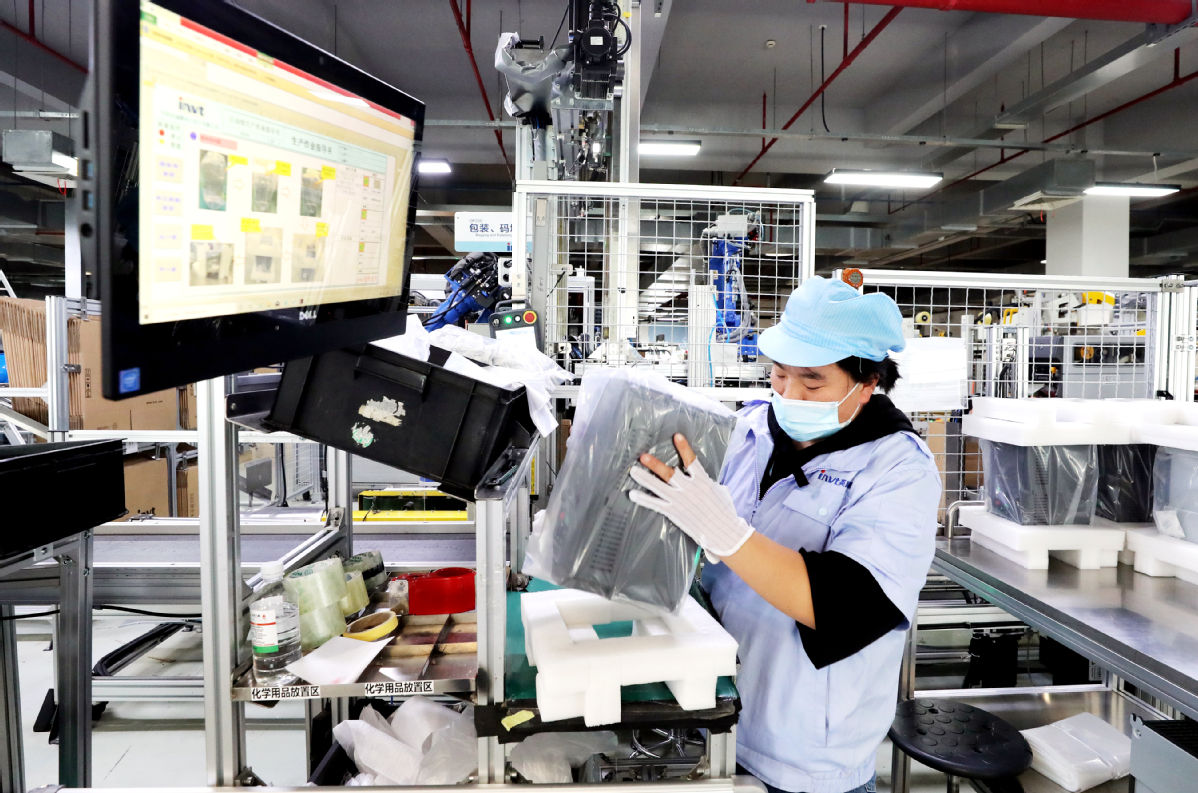
China will offer more export tax rebates to ease the current financial pressure on export-oriented companies, and open green channels for the import of vital manufacturing parts to maintain the stability of the industrial chain, government officials said on Thursday.

Export tax rebates refer to a critical trade policy measure for supporting exports. They demand the refund of value-added tax and consumption taxes already paid on exported products during manufacturing, circulation and sales.
Despite China's first-quarter export growth beating expectations, a State Council executive meeting earlier this month decided to increase export tax rebates to support foreign trade growth. Businesses with better credit records will have access to greater Customs clearance and tax refund facilitation.
Wang Daoshu, deputy commissioner of the State Taxation Administration, said that in the next step, the government will enhance the linkage of export credit insurance and export tax rebate policies, and improve rebate policies for processing trade firms.
"The country will tap the potential of the departure tax refund policy, optimize the layout of tax refund stores, and vigorously implement convenience measures," he said, noting that the average processing time for export tax rebates will be shortened to six days across the country this year. Similar work used to take 10 days in 2019.
A total of 94,000 companies had enjoyed 37.7 billion yuan ($5.7 billion) in export tax rebates between March 20, 2020 and the end of 2021, after the government raised the rate of export tax rebates on 1,464 products two years ago, STA data showed.
The government will step up efforts to reinforce data-sharing and smooth the connections among Customs, tax and other departments to further streamline export tax rebate procedures, said Xie Wen, director-general of the goods and services tax department at the STA.
Efforts will also be made to support cross-border e-commerce firms by encouraging qualified companies to actively claim export tax rebates, said Yuan Xiaoming, director-general of the finance department at the Ministry of Commerce.
"We will promote the application of hedging products and services, facilitate the docking between banks and businesses, and make cross-border settlements in renminbi more convenient, as well as help micro, small and medium-sized foreign trade companies better manage exchange rate risks," he said.
Through policy assistance, the Ministry of Commerce started to work with China Export & Credit Insurance Corp in late February to give full play to export credit insurance's function in risk prevention and credit enhancement.
By stepping up the use of export credit insurance, the ministry will protect an exporter from the risk of nonpayment by a foreign buyer, and improve foreign trade companies' risk-hedging capability for two-way fluctuations in the exchange rate of the Chinese yuan to the US dollar, as part of holistic efforts to stabilize market entities and spur foreign trade growth.
Dang Xiaohong, deputy director-general of the national office of port administration at the General Administration of Customs, said the administration will guide local Customs branches to take measures according to different modes of transportation, different industries and product characteristics to help businesses solve the difficulties in the process of Customs clearance.
For instance, Customs authorities have opened a green channel for the import of important goods for people's livelihoods, and provided Customs clearance support for the aviation, integrated circuit, automobile manufacturing and other industries. They have also ensured the import and export of key parts and components to maintain the stability and smooth flow of industrial and supply chains, she said.
Wang Bo, head of the procurement and logistics department at Taixing Jinjiang Chemical Industry Co Ltd in Jiangsu province, said, "Although overseas demand has picked up, due to the increase in transportation costs and rising raw material prices, our cash flow has been tight."
Fortunately, the government tax rebate policies have greatly eased the financial pressure on the company, he said, adding the manufacturer of biofuels and industrial chemicals received 1.14 million yuan worth of export rebates in late March.